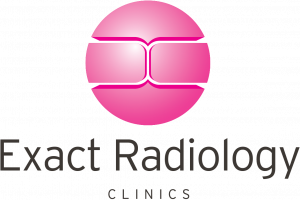Patients
Patients
Your Safety
RADIATION
Patients may be concerned about the possible effects of radiation exposure from our X-Ray and CT machines. Exact Radiology complies with the Radiation Safety Act (1999) as well as keeping updated and regularly serviced equipment. In addition our staff are highly experienced and qualified to operate our radiation emitting equipment.
The risk of harm from a diagnostic scan in an adult is very small and your doctor has weighed the risk against the benefit of the information that the examination would provide. The information gained from a scan, such as early diagnosis, may have significant health benefits.
Please feel free to discuss any concerns you may have with any of our technical staff members.
CONTRAST
For some CT scans it is possible that you will require an injection of an intravenous contrast, also known as ‘dye’. If you have had a previous contrast reaction or you have allergies you should advise our staff.
Before contrast is administered patients will receive a detailed questionnaire outlining the risks and benefits of contrast use. Patients will then be asked to sign this form which acknowledges that they have read and understood the information, were given an opportunity to ask any further questions and formally consent to the administration of the contrast. The contrast is NOT radioactive and exits the body via the kidneys (urine) and liver (into the bowel).
Contrast is administered into the bloodstream through a small plastic tube (cannula) that will be inserted into your arm vein and enters certain types of tissues in the body. This highlights the difference between the normal and abnormal tissue, hence the name contrast.
Please note that not all CT examinations require contrast, however as a general rule this is required for most neck, chest, abdomen and pelvis CT scans.
If you have been referred for an X-Ray or CT examination and there is any chance that you could be pregnant, it is very important that you advise the staff immediately.
